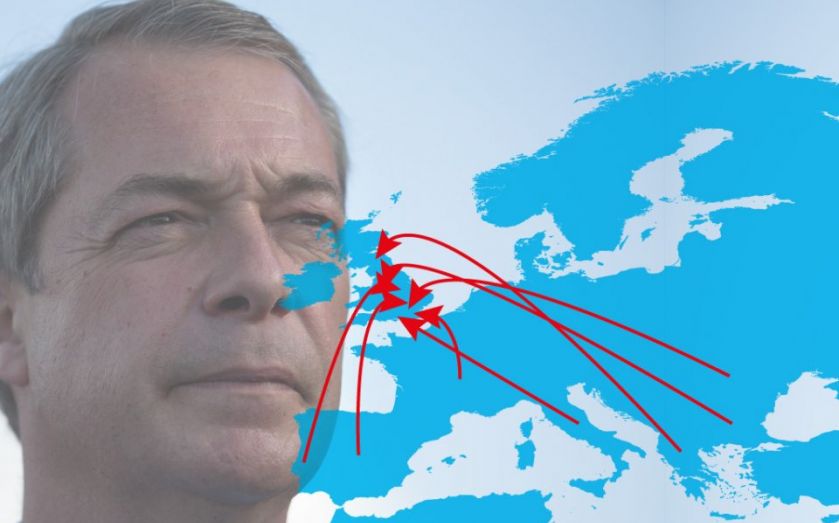Would raising the minimum wage really attract too many immigrants, as Nigel Farage suggests?

The arguments against raising the minimum wage are many and varied – but is Ukip leader Nigel Farage's assertion that an increase might attract Romanian immigrants fair?
While businesses argue hiking the minimum wage could raise the unemployment rate and lead to more illegal labour, today Farage suggested it would cause "even more people [to] want to come [to the UK]".
Speaking during a phone in on Radio 5 Live today, he said:
If you increase the minimum wage, you may actually even attract more migrant labour.
Don’t forget, the minimum wage in Britain is now nine times what it is in Romania. If you increase it even more people would want to come. I want to see the market adjust this.
The current proposal to increase the minimum wage, which is the Labour proposal, to put it up by 2019 to about £8 an hour, I don’t think a marginal increase is really going to make a difference.
How does the UK’s minimum wage compare across the European Union (EU)? According to data from Eurostat, the UK has the seventh highest minimum wage per month, measured by Purchasing Power Parity, which takes into account the varying cost of living. By that measure, Romania is third bottom.
But with an hourly minimum wage of £6.50, the UK has some way to go if it wants itself to be so unattractive no immigrants will want to come. 
Also pictured is a map of Eurostat’s data on danger of poverty: the percentage of the population considered to be at risk. The UK isn’t as attractive as other countries, where the risk is lower – so Farage can breathe a sigh of relief.
The UK’s jobs figures today, which showed the unemployment rate is 5.6 per cent and employment is at a record high, mean the UK is not struggling to employ its workforce – despite the fact the government is missing its immigration targets.